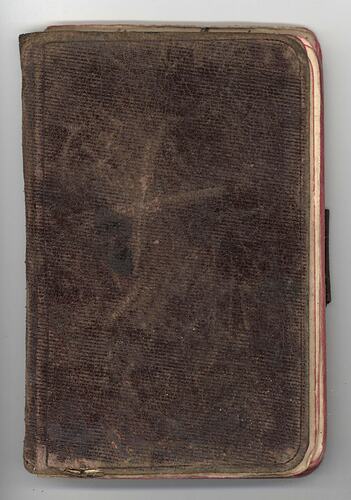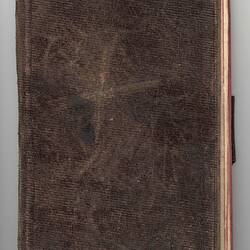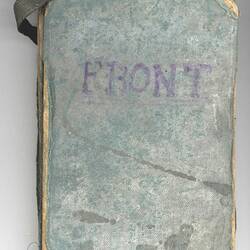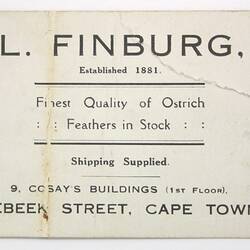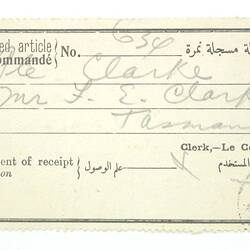Summary
Diary of Bombardier L.E. Clarke, 40 th Battery, 4th Brigade, AIF, 11 July 1915 to 11 July 1917. Two small notebooks, entries mainly in pencil, some in ink. First volume commences at 11 July 1915 and closes 12 November 1916; second continues from 13 november 1916 to 11 July 1917. The two volumes also contain a collection of songs.
Langley Edward Clarke (regimental number 1015) was a 22-year-old labourer from Pontville, Tasmania, who enlisted on 21 September 1914. He was assigned to the 15th Infantry Battalion, 4th Infantry Brigade, G Company. He was sent to Broadmeadows for training, then embarked from Melbourne on the 'Ceramic' on 22 December 1914. He became a gunner and was wounded at Gallipoli. In March 1916, after his recovery, he was transferred to the 4th Australian Division Artillery and sent to fight in Fance, where he was promoted to bombadier. In January 1917 he was transferred to the 10th Field Artillery Brigade and subsequently was posted to the 38th Battalion. On 18 July 1917 he was severley gassed, and after treatment in England was shipped back to Australia unfit. He was discharged from the Army on 29 January 1918.
Physical Description
Two volumes of a hand-written diary. The first volume is bound in dark brown leather, with rounded corners. Paper is off-white, ruled with vertial and horizontal lines. Diary written in combination of purple and lead pencil. Small slot for pencil in back cover of diary. The second volume has a hard cover bound in blue cloth (new very deteriorated, particularly at edges). The diary opens vertically, and is written down each pair of open pages. Each page is off-white, and ruled with faint lines. A black elastic strap (now with little elasticity and over-stretched) is intended to hold the diary closed.
Significance
Personal diaries provide a valuable insight into the daily life in the Australian armed forces. Some diarists record the mundane routines of daily life in military camps, or ports visited during voyages on transport ships; others provide graphic details of battles and medical treatments. Welcome letters and parcels from home are described, and friendships are recorded. Many soldiers complain about the food, or record welcome or festive meals such as Christmas. The diaries show many of the ways servicemen and women coped with the discipline, stress and tragedy of war.
More Information
-
Collection Names
-
Collecting Areas
Home & Community, Public Life & Institutions, Home & Community
-
Acquisition Information
Donation from Mr Hardy Enscoe, 04 Feb 1986
-
Author
-
Place Made
-
Place Made
-
Format
Book
-
Inscriptions
[Extensive Text]
-
Classification
-
Category
-
Discipline
-
Type of item
-
References
Service records for Langley Clarke are held at the National Archives of Australia - Series number B2455, Barcode 1969950.
-
Keywords
Diaries, Militaria: Australian, Military Memorabilia, Music, Wars & Conflicts, World War I, 1914-1918, Making History - War Diaries and Correspondence, Battle of the Somme (Somme Offensive), 1916
